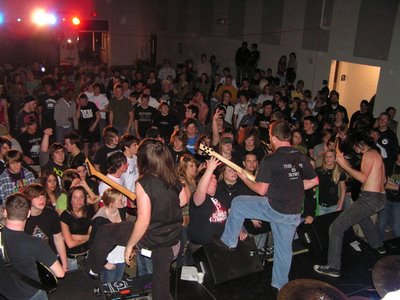So far we have had a total of 45 responses to the survey. The survey is still open so if you haven’t had a chance to participate there’s still time.
Here are some of the results:
Territories Represented
USA South. . . . . . . . . . . . . . .17
Canada & Bermuda. . . . . . . . 8
USA EAST. . . . . . . . . . . . . . . .4
WEST. . . . . . . . . . . . . . . . . . . .3
UK . . . . . . . . . . . . . . . . . . . . . .2
Australia South. . . . . . . . . . . 2
Australia East. . . . . . . . . . . . .1
Finland/Estonia. . . . . . . . . . . 1
Latin America North . . . . . . 1
Hong Kong . . . . . . . . . . . . . . . 1
Sweden & Latvia . . . . . . . . . .1
What generation of Salvationist are you? The majority of participants are first and fifth generation or more.
First .................33.3% 15
Second .............17.8% 8
Third ................13.3% 6
Fourth ................6.7% 3
Fifth or more ...28.9% 13
Which of the following best describes your Salvation Army involvement? Corps Officers and Soldiers are the majority.
Cadet .....................................6.7% 3
Assistant Corps Officer ......8.9% 4
Corps Officer .....................33.3% 15
Divisional Officer ................2.2% 1
SA Employee .....................13.3% 6
Soldier ................................33.3% 15
Attendee (Non-Member) .2.2% 1
Ex Officer ............................2.2% 1
Ex SA Member ..................4.4% 2
Other .................................15.6% 7
TOTAL ...........................................45
Would you prefer wearing an alternative uniform such as an official polo shirt and slacks during times of corporate of worship?Yes ..............................................28.6% 12
I feel this way sometimes ...........19% 8
Unsure .........................................4.8% 2
No. ...............................................28.6% 12
Do not care ....................................19% 8
Total Respondents ....................................42
(Skipped Question) 3
Those that took a firm stand are divided with 29% (12) saying “yes” and 29% (12) saying “no.” Those that responded: “feel this way sometimes,” “unsure,” or “don’t care” make up 42%. Depending on the context, these respondents could go either way.
Young people are embarrassed to tell their friends that they worship at The Salvation Army.
Agree ...........................15.9% 7
Somewhat agree ........20.5% 9
Unsure ........................20.5% 9
Somewhat disagree ...22.7% 10
Disagree ......................18.2% 8
Do not care ......................0% 0
Total Respondents ......................44
(Skipped Question) 3
The responses for this question are evenly distributed. However, as we look at how different generations responded new issues may arise.
Changing the name of The Salvation Army’s Worship Center to something like “New Life Worship Center” could help the Army attract more people.Agree .........................6.8% 3
Somewhat agree ....27.3% 12
Unsure ......................9.1% 4
Somewhat disagree .6.8% 3
Disagree ..................47.7% 21
Do not care ...............2.3% 1
Total Respondents ..............44
(Skipped Question) 2
The majority of respondents disagree that changing the name of the worship center could help attract more people.
Generational DifferencesThe uniformThe most interesting finding about the uniform question is how the generational difference seems to affect the response. For example, 38% of first generation sallies said that they would prefer wearing an alternative uniform during corporate worship. Another 25% said that they “feel this way sometimes” and 19% didn’t care. Only one first generation respondent said “no” to the alternative uniform.
Of the fifth generation sallies, 50% said they would prefer wearing the army uniform in corporate worship and 16% did not care. Only 15% (2) of the fifth generation sallies would prefer wearing an alternative uniform.
The stigma
58% of fifth generation sallies either “disagreed” or “somewhat disagreed” that young people are embarrassed to tell their friends they worship at The Salvation Army. Only 17% “agreed” or “somewhat agreed” that young people are affected by a stigma.
Compare that with 50% of first generation sallies who “agreed” or “somewhat agreed” with the statement. 29% of them “disagreed” or “somewhat disagreed” that young people are embarrassed to tell their friends they worship at The Salvation Army.
The name of the worship centerThe generational differences are especially visible when addressing the question to whether changing the name of the worship center could help attract more people or not. 63% of first generation sallies either “agreed” (19%) or “somewhat agreed” (44%) that changing the name could be helpful. 66% of fifth generation sallies “disagreed.” Only 1 fifth generation “somewhat agreed” with the statement.
Survey Limitations
The limitation of this survey is that it does not (and probably cannot) take into account the unique context of each respondent. Our history, background, and personal experiences will affect each of our responses differently. The challenge is to identify those differences so as to strategically address the challenges and take advantage of the opportunities that exist for our organization.
Another limitation is the number of respondents. With only 44 participants it is impossible to accurately assess the landscape of the army. However, you can see how a survey such as this that included every officer in a single territory could be helpful in understanding issues and challenges that exist in the army.
Temporary Conclusion
I’ve not expounded on every issue that the survey raised. The purpose of this exercise was for all of us to learn from the experience, to have fun, and get additional feedback on developing future surveys. Future blogs will give updates on the results as well as comments that were made in the survey.
Thanks to all who participated. If the survey raised more questions than it answered please help me taking one more short survey and sharing your impression and giving feedback.
Click here for the survey:
http://www.surveymonkey.com/s.asp?u=471672149698















